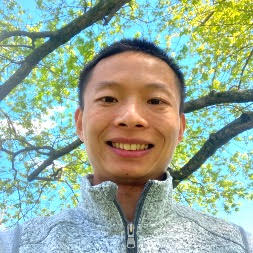
Tell us about yourself.
My name is Xu Han, and I am a Ph.D. student at George Mason University based in Northern Virginia. My research area is in information technology.
What is important to you about engaging with your local government?
As modern information technologies are impacting our society in every aspect, it’s important that local government is aware of the impact and stays on top of the issues that the technologies create in human lives. Given their permeating nature, information technologies have a grassroot growth model, and thus government awareness and efforts need to start at the grassroot level as well. It is up to us, the people, to decide whether the technologies are used for good or not.
What did you do?
I have been doing research about technological unemployment and market democratization, and just decided to work on my thesis proposal earlier this year. Then the professor who taught the proposal writing class informed me of the COVES Fellowship opportunity. I felt this is a great opportunity to reach out to the local government, and advocate my research for the social good, so I applied and got the fellowship! Then I was matched with my host office – the Office of Recovery Services at the Virginia Department of Behavioral Health and Developmental Services.

Xu Han.
What happened?
The science policy fellowship turned out to be very flexible and customizable in my case. My host office was a newly established branch, and was working on the strategic planning for the next few years, so they pulled me into this core project of how to better serve the people of the whole Commonwealth of Virginia! One priority was to build a strong data foundation for decision making, so my science expertise well fit in. They shared with me valuable feedback data from the listening sessions that they conducted with the people in the field, and I built a data processing pipeline for analyzing the data and drawing insights through evidence-based approaches, data traceability, and quantitative and qualitative measurements. The result appeared to be appreciated by the office, and together we presented it again to a larger audience of more than 50 people!
What did you get out of this experience?
Through the COVES Fellowship, I have systematically learnt how the legislative branches function, and how a bill is made at the state level. It also allowed me to work alongside the people in the government to understand their challenges and make a contribution with my expertise. One thing that surprised me is that people in the Office of Recovery Services are so respectful, collaborative, and empathetic. I truly felt thankful and honored to be placed on such a wonderful team, and that I could offer a little bit of help. I think my fellowship experience has given me great encouragement in interacting with the legislative community, in doing my research, and in choosing my career path. Interestingly, the work that I did impressed the office leadership and they even wanted to extend a consultant position to me and see if the pipeline can be further developed into a more holistic web-based solution.